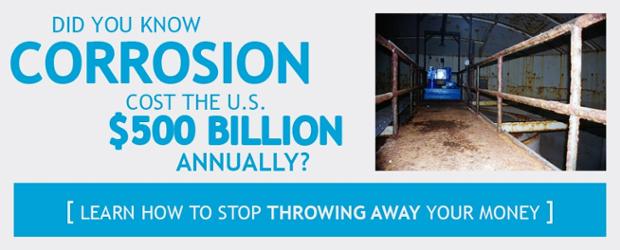The harsh environment of the marine industry is known for causing corrosion which cost individuals...
The Effects of Corrosion in the Marine Industry
The harsh environment of the marine industry is known for causing corrosion which cost individuals and companies. In fact, “It has been estimated that the total cost of marine corrosion worldwide is between $50-80 billion every year” (Maritime Industry). What is astonishing about these numbers is that the coatings industry accounts for 40% of the total direct cost.It is smart for companies in the marine industry to be spending the money on corrosion prevention. Salt is among of the most corrosive elements to metal. Many of these companies are spending their money coating highly corrosive metal while there is a smarter option. Coating metal will help. It is, in fact, extremely necessary when working with metal to delay the process of corrosion, but metal still won’t last a very long time. Even if you strip off the coating and recoat the metal every one to two years, there are still rusting areas that cannot be addressed. The rust in these areas will continue to spread only further, increasing the amount of corrosion (Albrecht, 2014). Alternative materials, such as fiberglass reinforced plastic (FRP), require less maintenance while at the same time maintains a longer service life.
Depending on the application, FRP products may need a UV protection sealant; however, the sealant application does not require the amount of maintenance that coating metal would, and it is more of a precaution than a necessity. Metal surfaces need to be recoated every one to two years in marine applications. FRP’s UV sealant will protect the material for a substantially longer time.
 FRP has a significantly longer service life than metal. The cost savings are astronomical. The maintenance requirements are a fraction of that of comparable metal products, saving the end user or customer a great deal of money. The installation of these products is much less expensive than metal due to the light weight properties.
FRP has a significantly longer service life than metal. The cost savings are astronomical. The maintenance requirements are a fraction of that of comparable metal products, saving the end user or customer a great deal of money. The installation of these products is much less expensive than metal due to the light weight properties.
Because FRP products do not corrode the way metal does, they are a much safer alternative. The risk involved with using rusty metal or metal that has corroded are extremely high. This could end up costing your company a great deal of money due to workers’ compensation claims, lost productivity, and other various cost.
In order to avoid the risk of rust and to save on maintenance costs, use FRP as an alternative to metal.
Works Cited
Albrecht, D. (2014, June 18). (B. Fossier, Interviewer)
Maritime Industry. (n.d.). Retrieved June 17, 2014, from NACA International: The Corrosion Society: http://www.nace.org/Corrosion-Central/Industries/Maritime-Industry/
Topics: Corrosion Resistant


